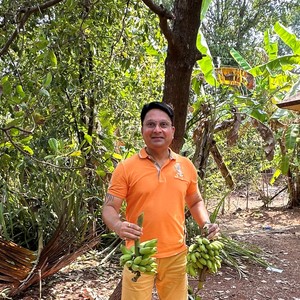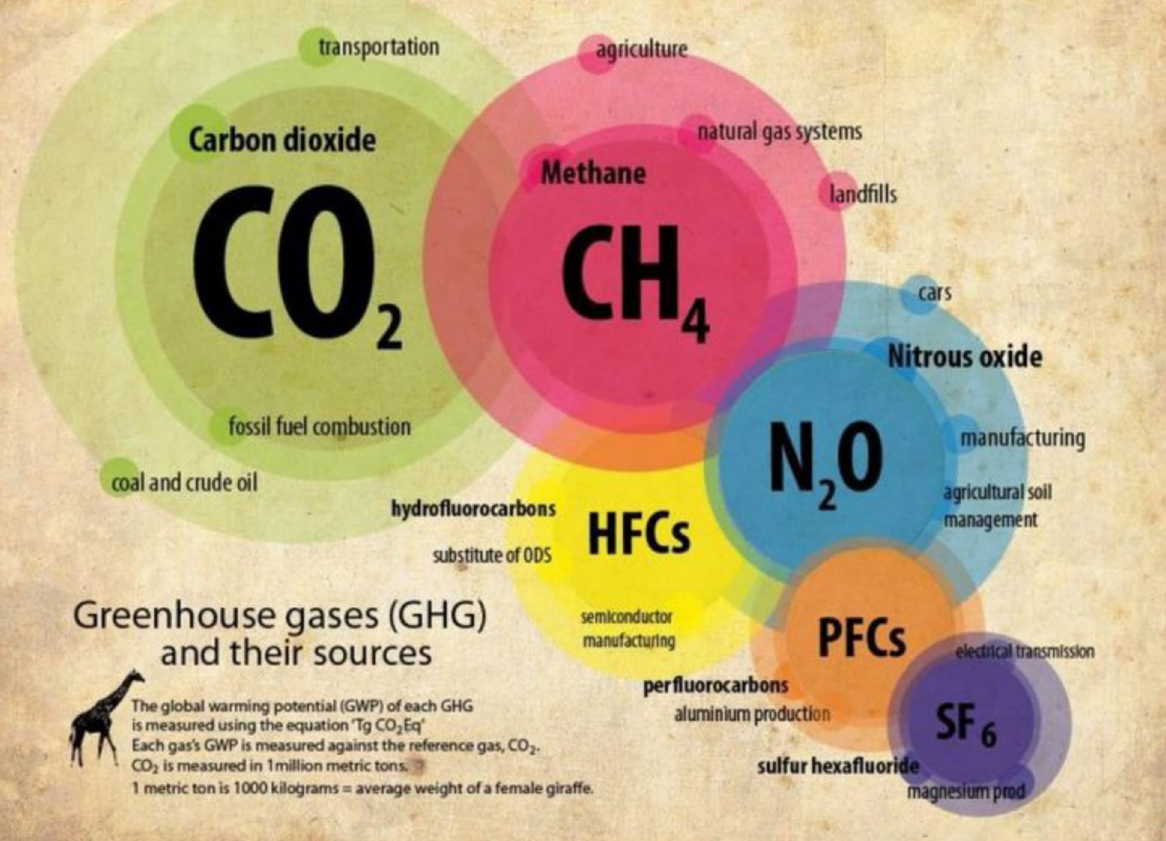PRATEEK SINGHVI
"Go Sustainable Living Boldy !"
POINTS TOTAL
- 0 TODAY
- 0 THIS WEEK
- 1,799 TOTAL
participant impact
-
UP TO600gallons of watersaved
-
UP TO1.0water footprintcalculated
-
UP TO1.0donationmade
-
UP TO1.0productreplaced with sustainable alternatives
-
UP TO1.0advocacy actioncompleted
-
UP TO2.0community eventshosted or attended
-
UP TO1.0schoolsupported
-
UP TO1.0environmental auditconducted
-
UP TO1.0new placesexplored
-
UP TO185minutesspent learning
PRATEEK's actions
Share My Why
Take the Earth Month Ecochallenge Feedback Survey
I will take a short survey about my experience to help the Ecochallenge team improve future events, earn a chance to win a prize, and earn 15 points!
Share My Why
Share My Why
I will share my Ecochallenge story and why I'm taking action for the planet — and earn 15 points!
Community and Connection
Become a Sustainability Aficionado or Invite a Colleague!
Become a Sustainability Aficionado or invite one of your colleagues to join if you're already tuned into the program.
Health and Well-Being
Audit Toxic Products in my Home
Many common products contain harmful chemicals. I will spend 5 minutes researching chemicals found in products I use, and I will make a list of products I'd like to replace with safer options.
Health and Well-Being
Learn About Local Environmental Justice Concerns
Environmental issues often impact marginalized communities the most. I will spend 5 minutes researching environmental justice concerns in my region, who is affected by them, and local initiatives to address these concerns.
Sustainable Innovation
Invest in the Future of Sustainability
Sustainable investments shape a greener future. I will research and invest in companies, funds, or projects that supports sustainability, such as renewable energy, green tech, or sustainable practices. I will share more about who I supported with others on social media or in the Ecochallenge feed.
Empowering the Next Generation
Conduct an Audit with a Young Person
Learning by doing empowers youth. I will conduct an environmental audit — such as a home energy or waste audit — alongside a young person to teach them practical sustainability skills and see what I learn from them as well.
Land, Water, and Air
Learn About Water Justice
Access to clean water is a basic right, yet not everyone has it. I will spend 10 minutes learning about water justice issues and who is affected.
Land, Water, and Air
Understand My Water Footprint
Each of us has a water footprint, directly linked to our daily activities as well as the water required in the production of things we use each day. Understanding our water use is important for a healthy planet. I will calculate my water footprint and look for a few ways I can reduce consumption or waste, then share what I learned on the feed.
Land, Water, and Air
Join a Cleanup Effort
Working together to clean up public spaces helps the environment and builds community. I will participate in 1 community cleanup efforts in my neighborhood or local area.
Community and Connection
Visit or Learn About a Culturally Significant Site Near Me
Sites of cultural and spiritual significance hold deep meaning for many communities, particularly Indigenous peoples. I will learn about or visit a site near me that is significant to the history, culture, or environment of the area. I will approach my visit with respect by researching its importance and guidelines beforehand, reflecting on how we can preserve these spaces for future generations.
Land, Water, and Air
Take Shorter Showers
Conserving water helps protect this precious resource. I will shorten my showers to 5 minutes to save water and reduce energy use - each time saving up to 20 gallons (75 L) of water!
Land, Water, and Air
Reduce Food Waste
Wasting food also wastes water, energy, and resources. I will keep a daily log of food I throw away during the Ecochallenge, either because it went bad before I ate it, I put too much on my plate, or it was scraps from food preparation, and commit to reducing my food waste throughout the challenge.
Community and Connection
Explore My Area
Discovering what’s nearby fosters a deeper connection to my community. I will explore 1 new places in my area, such as parks, historical sites, or local businesses.
Empowering the Next Generation
Support a School
Schools play a crucial role in youth development and be hubs for sustainability. I will donate funds, time, or supplies to 1 local schools to support environmental education, field trips, sustainability projects, and youth empowerment. I will share how I supported schools on the feed.
Health and Well-Being
Go Get a Check Up
Regular health check-ups help prevent problems before they start. I will schedule or attend a medical, dental, or mental health check-up to take care of my well-being.
Health and Well-Being
Replace a Product
Small changes can make a big difference for health and sustainability. Using what I learned from auditing ingredients in the products I use, I will replace 1 toxic or harmful products I use with safer, eco-friendly alternatives.
Sustainable Innovation
Choose a Product Made with Sustainable Materials
Every choice matters. I will purchase or switch to products made from sustainable or recycled materials to support innovation and reduce environmental impact.
Sustainable Innovation
Support a Crowdfunded Sustainability Innovation
Small contributions can drive big ideas. I will support a crowdfunded sustainability project to help bring innovative, eco-friendly solutions to life and share the project on social media or on the Ecochallenge feed.
Sustainable Innovation
Donate to or Support Low-Income Solar Initiatives
Clean energy should be accessible to all. I will support, donate, or volunteer to help programs that bring solar energy to low-income communities, helping create a more equitable and sustainable future.
Sustainable Innovation
Advocate For Better Food Packaging
When companies and governments make large-scale changes to their products and practices, it makes sustainability more accessible to the masses, in turn creating further demand for sustainable products, and the cycle continues. I will advocate for improved, sustainable food packaging through petitions, letters, or by supporting brands that prioritize eco-friendly packaging - and share my advocacy actions on the feed.
Community and Connection
Attend a Local Event
Local events such as farmers' markets, festivals, or community meetings like town halls are great ways to feel part of a community. I will attend 1 community events to connect with others and learn more about my area.
Land, Water, and Air
Save Water When Washing Dishes
Dishwashers can save water — if used wisely. I will only run the dishwasher when it’s full and skip the pre-rinse to reduce water and energy use. If I don't have a dishwasher, I will turn off the tap as often as possible while washing dishes.
Land, Water, and Air
Learn to Choose Forest-Friendly Foods
Our food choices can help protect forests and wildlife. I will spend 5 minutes learning how to choose foods that are grown in ways that protect forests, such as avoiding products linked to deforestation and seeking certified sustainable options like shade-grown coffee or palm oil-free products.
Land, Water, and Air
Choose Eco-Friendly Wood and Paper Products
Trees provide food and habitat for local wildlife species, shade our streets and homes, and help keep our air and water clean by capturing pollutants. I will learn about certification labels and buy wood and paper products certified as sustainable or recycled to protect forests and reduce environmental harm.
Participant Feed
-
 PRATEEK SINGHVI 4/29/2025 9:55 PM
PRATEEK SINGHVI 4/29/2025 9:55 PM- TEAM CAPTAIN
- Plant-Based Foodie 🥬
- 17-DAY STREAK
Team ,Its day 30th Last Final Day - Let’s Go ! Go Boldly ! Keep Shining ! Keep Up the movement to rise EEEC Pune Green Team on Global Dashboard of EcoChallenge !!!!
We are all have done an incredible journey of building daily habits for these many days , inorder to reflect your efforts towards the better world to live for ourselves you need to login and checkin everyday and make yourself shine and your team globally . We are almost towards end of the month you will see the result on how these 30 days of your contribution helped individually on CO2 reduction and building good habits with all the matrices on the dashboard. Kindly Close all your actions till today with following.- Keep checkin all your 5 daily actions , answer all reflection questions
- Keep posting on what you have done in these days to reflect the transformation you are being in you and people around you.
Thanks for Contribution !!! -
 PRATEEK SINGHVI 4/28/2025 8:23 PM
PRATEEK SINGHVI 4/28/2025 8:23 PM- TEAM CAPTAIN
- Plant-Based Foodie 🥬
- 17-DAY STREAK
-
Swapnil Phule 4/28/2025 8:25 PM- TEAM CAPTAIN
- Plant Parent 🪴
- 17-DAY STREAK
-
 SHUBHAM THAKARE 4/28/2025 8:24 PM
SHUBHAM THAKARE 4/28/2025 8:24 PM- Adventurer 🏔
- 17-DAY STREAK
-
 PRATEEK SINGHVI 4/27/2025 9:15 PM
PRATEEK SINGHVI 4/27/2025 9:15 PM- TEAM CAPTAIN
- Plant-Based Foodie 🥬
- 17-DAY STREAK
-
 PRATEEK SINGHVI 4/27/2025 8:53 AM
PRATEEK SINGHVI 4/27/2025 8:53 AM- TEAM CAPTAIN
- Plant-Based Foodie 🥬
- 17-DAY STREAK
Keep going team we still have 3 days left to mark our presence collectively.. -
 PRATEEK SINGHVI 4/25/2025 10:01 PM
PRATEEK SINGHVI 4/25/2025 10:01 PM- TEAM CAPTAIN
- Plant-Based Foodie 🥬
- 17-DAY STREAK
-
 Dinakaran P 4/25/2025 10:05 PM
Dinakaran P 4/25/2025 10:05 PM- Artist 🎨
- 17-DAY STREAK
-
 PRATEEK SINGHVI 4/24/2025 10:37 PM
PRATEEK SINGHVI 4/24/2025 10:37 PM- TEAM CAPTAIN
- Plant-Based Foodie 🥬
- 17-DAY STREAK
We need to construct more and more of Energy Efficient Houses , we have seen in past heavy city construction work with concrete created a massive jungle of concrte and brick based houses wthout proper Heating & Ventilating System and this has heavy impact on our Enviornment . Below is the quick example of how we can have enrgy efficient houses
-
 PRATEEK SINGHVI 4/23/2025 11:04 PM
PRATEEK SINGHVI 4/23/2025 11:04 PM- TEAM CAPTAIN
- Plant-Based Foodie 🥬
- 17-DAY STREAK
-
 Rahul Borole 4/24/2025 2:08 AM
Rahul Borole 4/24/2025 2:08 AM- Adventurer 🏔
- 17-DAY STREAK
-
 PRATEEK SINGHVI 4/22/2025 9:04 PM
PRATEEK SINGHVI 4/22/2025 9:04 PM- TEAM CAPTAIN
- Plant-Based Foodie 🥬
- 17-DAY STREAK
-
 JAYESH VIJAYAN 4/22/2025 9:05 PM
JAYESH VIJAYAN 4/22/2025 9:05 PM- Earth Advocate 📣
- 17-DAY STREAK
-
 PRATEEK SINGHVI 4/21/2025 10:32 PM
PRATEEK SINGHVI 4/21/2025 10:32 PM- TEAM CAPTAIN
- Plant-Based Foodie 🥬
- 17-DAY STREAK
-
 Manish Salvi 4/21/2025 10:37 PM
Manish Salvi 4/21/2025 10:37 PM- Adventurer 🏔
-
 PRATEEK SINGHVI 4/21/2025 1:13 AM
PRATEEK SINGHVI 4/21/2025 1:13 AM- TEAM CAPTAIN
- Plant-Based Foodie 🥬
- 17-DAY STREAK
-
 Apurva Surve 4/23/2025 9:48 PM
Apurva Surve 4/23/2025 9:48 PM- Adventurer 🏔
- 16-DAY STREAK
-
 Marylene Pascua 4/21/2025 5:45 AM
Marylene Pascua 4/21/2025 5:45 AM- Pet Parent 🐾
- 17-DAY STREAK
-
 Stephen Guthrie 4/21/2025 1:19 AM
Stephen Guthrie 4/21/2025 1:19 AM- TEAM CAPTAIN
- Earth Advocate 📣
- 17-DAY STREAK







